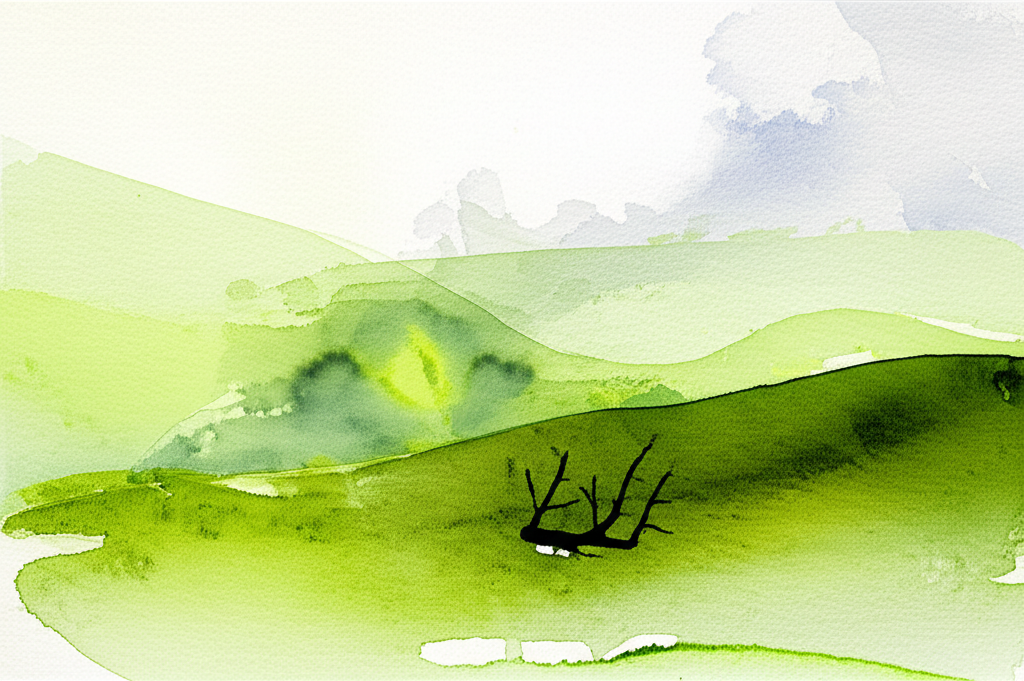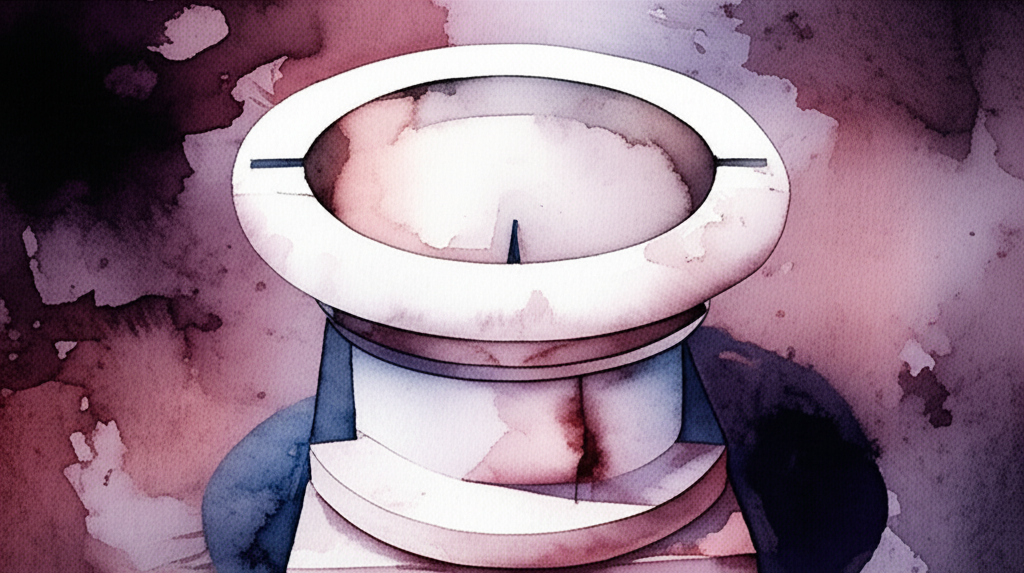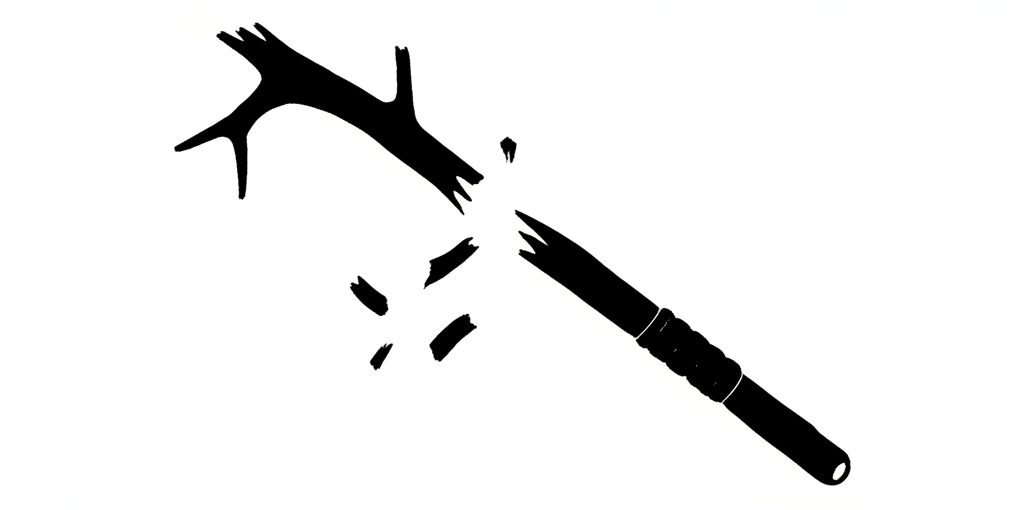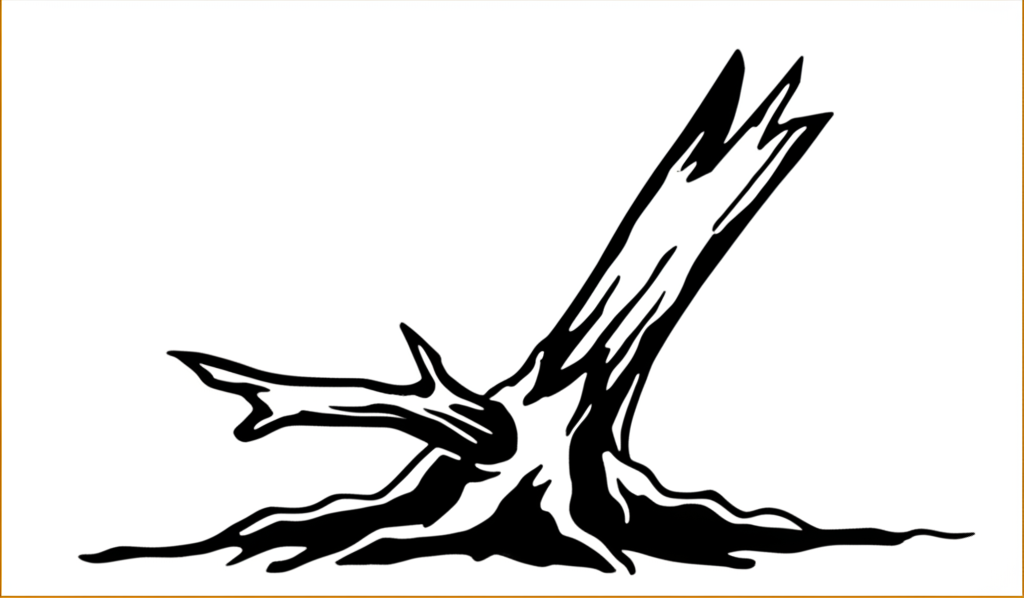Hosea 13 meaning explained in AI Summary
Chapter 13 of Hosea delivers a powerful message of judgment against Israel for their persistent idolatry and unfaithfulness to God. It also hints at the possibility of future restoration, but only after they face the consequences of their actions.
of the chapter:
1. Israel's Sin and Impending Doom (Verses 1-8):
- The chapter begins by recalling a time when Israel honored God, but they have since turned to idolatry, specifically worshipping Baal.
- This apostasy will lead to their downfall. God declares that they will be like chaff scattered by the wind, vanishing from their land.
- Their idols will be powerless to save them, and God will be like a lion, a leopard, or a bear lying in wait to punish them.
2. The Consequences of Rejecting God (Verses 9-14):
- Israel's destruction is a direct result of their rejection of God, their true King.
- They foolishly sought help from Assyria, which will ultimately lead to their captivity.
- Even though God desires to heal and redeem them, their wickedness and refusal to repent will bring about their destruction.
- The imagery of death and the grave emphasizes the severity of their sin and the certainty of judgment.
3. A Glimmer of Hope (Verses 14-16):
- Despite the bleak pronouncements of judgment, a glimmer of hope emerges.
- God, in His love and mercy, will not abandon His people forever.
- He promises to redeem them from death and the grave, suggesting a future restoration.
- However, this restoration is conditional upon their repentance and return to Him.
Key Themes:
- God's Faithfulness vs. Israel's Unfaithfulness: The chapter highlights the stark contrast between God's unwavering love and Israel's persistent idolatry and betrayal.
- Judgment and Hope: While the chapter primarily focuses on the consequences of sin, it also offers a glimmer of hope for future restoration if the people repent.
- The Sovereignty of God: God is depicted as a righteous judge who punishes sin but also as a loving God who desires to redeem His people.
Overall, Hosea chapter 13 serves as a powerful reminder of the dangers of idolatry and the importance of remaining faithful to God. It also offers a message of hope, reminding us that even in the face of judgment, God's love and mercy remain available to those who turn back to Him.
Hosea 13 bible study ai commentary
Hosea 13 condemns Israel (Ephraim) for its fatal pride and idolatry, which turned God from their Shepherd into a predator poised to destroy them. The chapter moves from a diagnosis of sin (idolatry rooted in forgetting God's past deliverance) to the terrifying sentence of national death, symbolized by predatory animals and the destructive east wind of Assyria. Amid this graphic pronouncement of judgment, a glorious promise of future redemption bursts forth, where God himself will conquer Death and the Grave (Sheol), a promise that finds its ultimate fulfillment in the resurrection of Jesus Christ.
Hosea 13 context
The prophecies of Hosea were delivered in the final, chaotic decades of the Northern Kingdom of Israel (also called Ephraim, after its largest tribe) before its fall to the Assyrian empire in 722 B.C. This period was marked by extreme political instability with a rapid succession of kings, assassinations, and disastrous foreign alliances. Spiritually, Israel had fully embraced the syncretic worship of Canaanite deities, particularly Baal, even setting up golden calves as objects of worship in Dan and Bethel. Hosea's message is a final, urgent lawsuit from God against His unfaithful covenant people, pleading for repentance while announcing the imminent and unavoidable judgment for their spiritual adultery.
Hosea 13:1
When Ephraim spoke, there was trembling; He exalted himself in Israel; But when he offended through Baal, he died.
In-depth-analysis
- Past Glory: "When Ephraim spoke, there was trembling" recalls a time when the tribe of Ephraim, and by extension the Northern Kingdom, held significant power and influence among the tribes. This refers to their early prominence (e.g., Joshua was an Ephraimite).
- The Root of Sin: "He exalted himself" points to pride as the foundational sin. Their influence led to arrogance rather than gratitude to God.
- The Specific Sin: "offended through Baal" identifies the specific act of rebellion. Baal worship was a direct violation of the first and second commandments.
- The Consequence: "he died" refers not to a single event, but a process. It signifies spiritual death, the loss of God's favor, and the beginning of the nation's decline toward its ultimate destruction.
Bible references
- Deuteronomy 32:15: "...Jeshurun grew fat and kicked... He forsook God who made him, And scornfully esteemed the Rock of his salvation." (Prosperity leading to rebellion).
- Proverbs 16:18: "Pride goes before destruction, And a haughty spirit before a fall." (The principle of pride leading to downfall).
- 1 Kings 12:28-30: "...Here are your gods, O Israel, which brought you up from the land of Egypt! ...And this thing became a sin... " (The original sin of the Northern Kingdom).
Cross references
1 Kgs 16:31 (Ahab and Baal worship); Rom 8:13 (living by the flesh leads to death); Eph 2:1 (dead in trespasses).
Hosea 13:2
Now they sin more and more; They have made for themselves a molten image, And idols of their silver, according to their own skill, A work of craftsmen; They say of them, "Let the men who sacrifice kiss the calves!"
In-depth-analysis
- Progressive Sin: "Now they sin more and more" shows that their rebellion was not a one-time act but a deepening spiral of apostasy.
- Human-Centered Worship: "according to their own skill" highlights the foolishness of idolatry. They worship objects made by human hands, based on human imagination, rather than worshiping the transcendent Creator.
- Act of Devotion: "kiss the calves!" was an act of reverence and worship in the ancient Near East. It was a direct affront to God, echoing the golden calf sin at Sinai.
- Polemic: This is a direct attack on the official, state-sponsored religion of the Northern Kingdom centered at Bethel and Dan, which used golden calves as representations of divinity.
Bible references
- Exodus 32:4: "...and he had made it a molded calf. Then they said, 'This is your god, O Israel, that brought you out of the land of Egypt!'" (The archetypal sin of idolatry in Israel).
- Isaiah 44:9-10: "Those who make an image, all of them are useless... Who would form a god or mold an image that profits him nothing?" (The folly of idol making).
- Romans 1:23: "...and changed the glory of the incorruptible God into an image made like corruptible man..." (The essential exchange that defines idolatry).
Cross references
Exod 20:4-5 (prohibition of idols); 1 Kgs 19:18 (those who did not kiss Baal); Ps 115:4-8 (idols are work of human hands).
Hosea 13:3
Therefore they shall be like the morning cloud, And like the early dew that passes away, Like chaff that is driven with a whirlwind from the threshing floor, And like smoke from a chimney.
In-depth-analysis
- Metaphors of Transience: This verse heaps up four powerful similes to describe the fleeting nature of Israel's existence.
- Morning Cloud & Early Dew: Appear substantial but vanish with the first heat of the sun.
- Chaff: The worthless part of the grain, easily blown away.
- Smoke: Lacks substance and dissipates into nothing.
- The point is emphatic: Israel's national life, which they thought was permanent, will be utterly and swiftly obliterated.
Bible references
- Psalm 1:4: "The ungodly are not so, But are like the chaff which the wind drives away." (The fate of the wicked).
- James 4:14: "...For what is your life? It is even a vapor that appears for a little time and then vanishes away." (The transient nature of human life).
- Hosea 6:4: "For your faithfulness is like a morning cloud, And like the early dew it goes away." (Hosea uses this metaphor earlier for their fickle devotion).
Cross references
Job 7:9 (cloud vanishes); Ps 68:2 (wicked perish like smoke); Isa 17:13 (chaff on the mountains).
Hosea 13:4
"Yet I am the LORD your God Ever since the land of Egypt, And you shall know no God but Me; For there is no savior besides Me."
In-depth-analysis
- Covenant Reminder: "I am the LORD your God...from the land of Egypt" is the foundational statement of the covenant (cf. Exod 20:2). It reminds Israel of their origin: they exist as a people only because of God's redemptive act.
- Divine Exclusivity: "you shall know no God but Me" is a direct appeal to the first commandment. "Knowing" implies a deep, covenantal, and loyal relationship.
- Exclusive Savior: "there is no savior besides Me" (
môšîaʿ- savior/deliverer). Israel had been seeking salvation and security from alliances with Assyria and Egypt and from idols like Baal. God declares that He is the one and only source of true salvation.
Bible references
- Exodus 20:2-3: "I am the LORD your God, who brought you out of the land of Egypt... You shall have no other gods before Me." (The preface to the Ten Commandments).
- Isaiah 43:11: "I, even I, am the LORD, And besides Me there is no savior." (Isaiah frequently repeats this theme of God's unique role as Savior).
- Acts 4:12: "Nor is there salvation in any other, for there is no other name under heaven given among men by which we must be saved." (The NT application of this principle to Jesus).
Cross references
Deut 32:39 (I kill and I make alive); Isa 45:21-22 (a just God and a Savior); Jude 1:25 (to the only God our Savior).
Hosea 13:5-6
"I knew you in the wilderness, In the land of great drought. When they had pasture, they were filled; They were filled and their heart was exalted; Therefore they forgot Me."
In-depth-analysis
- God's Faithful Care: "I knew you in the wilderness" refers to God's intimate care and provision during the 40-year journey, a time of utter dependence.
- The Danger of Plenty: The problem began when hardship ceased. "When they had pasture, they were filled." God's blessings of abundance, instead of producing gratitude, produced pride.
- Pride and Forgetting: "their heart was exalted; Therefore they forgot Me." This is the central spiritual pathology. Self-sufficiency born of prosperity led them to forget the Giver of all gifts. Forgetting God is the root of apostasy.
Bible references
- Deuteronomy 8:11-14: "Beware that you do not forget the LORD your God... when you have eaten and are full... then your heart be lifted up, and you forget the LORD your God who brought you out of... Egypt." (A direct and detailed warning that precisely predicted Israel's failure).
- Deuteronomy 32:15: "But Jeshurun grew fat and kicked; You grew fat, you grew thick, You are obese! Then he forsook God who made him..." (The "Jeshurun" cycle of rebellion).
- Jeremiah 2:6: "Neither did they say, 'Where is the LORD, Who brought us up from the land of Egypt, Who led us through the wilderness...?'" (Accusation of forgetting).
Cross references
Deut 6:11-12 (warning not to forget God); Hos 2:8 (she did not know I gave her grain); Amos 2:10 (reminding of Egypt deliverance).
Hosea 13:7-8
"So I will be to them like a lion; Like a leopard by the way I will lurk. I will meet them like a bear deprived of her cubs; I will tear open their rib cage, And there I will devour them like a lion. The wild beast shall tear them."
In-depth-analysis
- Shepherd to Predator: This is one of the most terrifying reversals in Scripture. The God who was their Shepherd (Ps 23:1) now takes on the role of their most feared predators.
- Calculated, Fierce Judgment: Each animal represents a different aspect of the attack:
- Lion (
lābî'): Raw, overwhelming power. - Leopard (
nāmēr): Stealthy, patient, and sudden ambush. - Bear deprived of her cubs: Uncontrollable, protective fury—the most dangerous of all.
- Lion (
- Visceral Destruction: "I will tear open their rib cage" (lit. "the enclosure of their heart"). This is not distant, impersonal judgment. It is intimate, violent, and unstoppable. God Himself is executing this judgment, using the "wild beast" (Assyria) as His agent.
Bible references
- Lamentations 3:10: "He has been to me like a bear lying in wait, Like a lion in ambush." (The experience of judgment personifies God as a predator).
- Jeremiah 5:6: "Therefore a lion from the forest shall slay them, A wolf of the deserts shall destroy them; A leopard will watch over their cities." (Similar imagery for judgment on Judah).
- Amos 3:8: "A lion has roared! Who will not fear? The Lord GOD has spoken! Who can but prophesy?" (The inevitability of God's word of judgment).
Cross references
2 Kgs 17:5-6 (the historical fulfillment by the king of Assyria); Isa 38:13 (like a lion, he breaks all my bones); 1 Pet 5:8 (Satan as a roaring lion).
Hosea 13:9-11
"O Israel, you are destroyed, For you are against Me, against your help. I will be your King; Where is any other, That he may save you in all your cities? And your judges to whom you said, 'Give me a king and princes'? I gave you a king in My anger, And took him away in My wrath."
In-depth-analysis
- The Cause of Ruin: "you are against Me, against your help." The tragic irony is that Israel destroyed itself by rejecting its only possible source of help and salvation.
- Rejection of Theocracy: The cry "Give me a king" refers to the event in 1 Samuel 8, where Israel rejected God's direct rule (theocracy) for an earthly monarchy like other nations. This was seen from the beginning as a rejection of God himself.
- The King as Judgment: "I gave you a king in My anger" can refer to Saul, the first king whose reign ended in tragedy, but more broadly to the entire institution of the monarchy which became corrupt and led Israel into idolatry and disaster. "And took him away" points to the political chaos and assassinations plaguing the Northern Kingdom in its final years (e.g., the line of Jehu being cut off).
Bible references
- 1 Samuel 8:7: "And the LORD said to Samuel, '...they have not rejected you, but they have rejected Me, that I should not reign over them.'" (God's own commentary on the request for a king).
- Isaiah 31:1: "Woe to those who go down to Egypt for help... But they do not look to the Holy One of Israel, Nor seek the LORD!" (Trusting human power over God).
- John 19:15: "...'We have no king but Caesar!'" (The ultimate rejection of God as King, echoing Israel's old sin).
Cross references
Deut 17:14-15 (instructions for a king); 1 Sam 10:19 (you have rejected your God); Hos 10:3 (we have no king).
Hosea 13:12-13
"The iniquity of Ephraim is bound up; His sin is stored up. The pangs of a woman in childbirth shall come upon him. He is an unwise son, For he should not stay long where children are born."
In-depth-analysis
- Recorded Sin: "iniquity...is bound up; His sin is stored up (
ṣāpûn)." This is legal imagery. Israel's sins are not forgotten; they are kept like evidence in a sealed scroll, ready to be presented on the day of sentencing. - Judgment as Birth Pangs: The pain of judgment is compared to childbirth—it is inevitable, intense, and inescapable.
- The Unwise Son: The metaphor shifts. Israel is like a baby in the birth canal that refuses to come out. At the "breaking point of the womb" (the cervix), it foolishly lingers. This depicts a suicidal stubbornness; they refuse to go through the pain that leads to new life (repentance), and by staying in the place of crisis, they ensure their own destruction.
Bible references
- Deuteronomy 32:34: "Is this not laid up in store with Me, Sealed up among My treasures?" (God's record-keeping of sin and impending vengeance).
- Romans 2:5: "But in accordance with your hardness and your impenitent heart you are treasuring up for yourself wrath in the day of wrath..." (Paul uses the same concept of "storing up" wrath).
- 1 Thessalonians 5:3: "...then sudden destruction comes upon them, as labor pains upon a pregnant woman. And they shall not escape." (The sudden and inescapable nature of judgment).
Cross references
Job 14:17 (transgression sealed in a bag); Isa 26:17-18 (labor pains without delivery); Jer 4:31 (anguish as of her who gives birth).
Hosea 13:14
"I will ransom them from the power of the grave; I will redeem them from death. O Death, I will be your plagues! O Grave, I will be your destruction! Compassion is hidden from My eyes."
In-depth-analysis
- Promise of Resurrection: This verse is a dramatic shift and one of the most powerful expressions of hope in the Old Testament. God promises to do what no one else can: conquer death.
- Ransom (
pādāh): To buy back, set free. - Redeem (
gāʾal): To act as a kinsman-redeemer, reclaiming what was lost.
- Ransom (
- A Divine Taunt: "O Death, I will be your plagues! O Grave (Sheol), I will be your destruction!" This is God speaking directly to the forces of Death and Sheol, personifying them as enemies He will decisively defeat. God Himself becomes the "death of Death."
- Interpretive Ambiguity: Some scholars read the first half as a rhetorical question ("Shall I ransom them? ... Shall I redeem them? No!"). However, the Apostle Paul, under divine inspiration, interprets it definitively as a promise of eschatological victory over death.
- "Compassion is hidden": This final phrase can refer back to the impending immediate judgment (v.15-16), meaning "For now, there is no compassion for this generation." Or it can mean God's resolve to destroy Death is so firm that He will have no "pity" on Death itself. The NT view favors the latter in the ultimate sense.
Bible references
- 1 Corinthians 15:54-55: "...'Death is swallowed up in victory.' 'O Death, where is your sting? O Hades, where is your victory?'" (Paul quotes Hosea 13:14 to celebrate Christ's resurrection as its fulfillment).
- Isaiah 25:8: "He will swallow up death forever, And the Lord GOD will wipe away tears from all faces..." (A parallel prophecy of the defeat of death).
- Hebrews 2:14-15: "...that through death He might destroy him who had the power of death, that is, the devil, and release those who through fear of death were all their lifetime subject to bondage." (Explains how Christ defeated death).
Cross references
Ps 49:15 (God will redeem my soul from Sheol); 2 Tim 1:10 (Christ abolished death); Rev 20:14 (Death and Hades cast into the lake of fire); Rev 21:4 (there shall be no more death).
Hosea 13:15-16
Though he is fruitful among his brethren, An east wind shall come; The wind of the LORD shall come up from the wilderness. Then his spring shall become dry, And his fountain shall be dried up. It shall plunder the treasury of every desirable prize. Samaria is held guilty, For she has rebelled against her God. They shall fall by the sword, Their infants shall be dashed in pieces, And their women with child ripped open.
In-depth-analysis
- The East Wind: "An east wind" (
rûaḥ qādîm) was a known symbol of fierce, destructive power, often representing invading armies from the east/northeast like Assyria and Babylon. This wind is from "the LORD," emphasizing that Assyria is God's instrument of judgment. - Total Desiccation: "his spring shall become dry, And his fountain shall be dried up." The sources of life and prosperity for the nation will be completely destroyed.
- Historical Fulfillment: "It shall plunder the treasury... Samaria is held guilty." This is a direct prophecy of the fall of Samaria, the capital of Israel, to the Assyrians in 722 B.C.
- Unsparing Brutality: "infants shall be dashed... women with child ripped open." This horrific description was a grim reality of Assyrian military practice, meant to inspire terror and completely wipe out any future resistance. Its inclusion shows the totality and severity of God's judgment on unrepentant rebellion.
Bible references
- Jeremiah 18:17: "I will scatter them as with an east wind before the enemy..." (The east wind as an instrument of divine judgment).
- 2 Kings 17:6: "In the ninth year of Hoshea, the king of Assyria took Samaria and carried Israel away to Assyria..." (The precise historical fulfillment of the prophecy).
- Isaiah 13:16: "Their children also will be dashed to pieces before their eyes; Their houses will be plundered And their wives ravished." (A similar prophecy of judgment's brutality against Babylon).
Cross references
Gen 49:22 (Joseph/Ephraim as a fruitful bough); Nahum 2:9 (plunder the silver); Ps 137:9 (dashing children against the rocks).
Hosea chapter 13 analysis
- The Divine "I Will": Throughout the chapter, God’s sovereign "I will" (
'ehyeh) dominates. It is used for both utter destruction ("I will be to them like a lion," v. 7) and ultimate salvation ("I will ransom them," v. 14). This underscores His absolute power over both judgment and redemption. - The Cycle of Blessing and Apostasy: The chapter follows the pattern seen in Deuteronomy and Judges: God blesses (v. 5), the people prosper, they become proud and self-sufficient (v. 6), they forget God and turn to idols (v. 2), and therefore judgment comes (v. 7-8).
- Judgment and Hope Intertwined: Hosea masterfully places the pinnacle of hope (v. 14) in the middle of the most severe declaration of judgment (v. 7-13, 15-16). This structure demonstrates that even in announcing destruction, God's ultimate purpose is redemption. The nation must die before it can be resurrected.
- The Folly of Human Saviors: A major theme is the failure of human institutions, like the monarchy ("Give me a king," v. 10), and foreign powers to provide the security that only God can give. Israel is destroyed precisely because it turns against its only help (v. 9).
Hosea 13 summary
Hosea 13 pronounces a divine death sentence upon the Northern Kingdom of Israel (Ephraim). Because they exchanged their past glory for pride and the worship of Baal, God transforms from their caring Shepherd into a fierce predator set on their total destruction, which will come via the Assyrian army. They foolishly refuse to repent, sealing their own doom. Yet, in a stunning turn, God promises to ultimately conquer their greatest enemies, Death and the Grave, offering a prophecy of resurrection that finds its glorious fulfillment in Jesus Christ.
Hosea 13 AI Image Audio and Video









Hosea chapter 13 kjv
- 1 When Ephraim spake trembling, he exalted himself in Israel; but when he offended in Baal, he died.
- 2 And now they sin more and more, and have made them molten images of their silver, and idols according to their own understanding, all of it the work of the craftsmen: they say of them, Let the men that sacrifice kiss the calves.
- 3 Therefore they shall be as the morning cloud and as the early dew that passeth away, as the chaff that is driven with the whirlwind out of the floor, and as the smoke out of the chimney.
- 4 Yet I am the LORD thy God from the land of Egypt, and thou shalt know no god but me: for there is no saviour beside me.
- 5 I did know thee in the wilderness, in the land of great drought.
- 6 According to their pasture, so were they filled; they were filled, and their heart was exalted; therefore have they forgotten me.
- 7 Therefore I will be unto them as a lion: as a leopard by the way will I observe them:
- 8 I will meet them as a bear that is bereaved of her whelps, and will rend the caul of their heart, and there will I devour them like a lion: the wild beast shall tear them.
- 9 O Israel, thou hast destroyed thyself; but in me is thine help.
- 10 I will be thy king: where is any other that may save thee in all thy cities? and thy judges of whom thou saidst, Give me a king and princes?
- 11 I gave thee a king in mine anger, and took him away in my wrath.
- 12 The iniquity of Ephraim is bound up; his sin is hid.
- 13 The sorrows of a travailing woman shall come upon him: he is an unwise son; for he should not stay long in the place of the breaking forth of children.
- 14 I will ransom them from the power of the grave; I will redeem them from death: O death, I will be thy plagues; O grave, I will be thy destruction: repentance shall be hid from mine eyes.
- 15 Though he be fruitful among his brethren, an east wind shall come, the wind of the LORD shall come up from the wilderness, and his spring shall become dry, and his fountain shall be dried up: he shall spoil the treasure of all pleasant vessels.
- 16 Samaria shall become desolate; for she hath rebelled against her God: they shall fall by the sword: their infants shall be dashed in pieces, and their women with child shall be ripped up.
Hosea chapter 13 nkjv
- 1 When Ephraim spoke, trembling, He exalted himself in Israel; But when he offended through Baal worship, he died.
- 2 Now they sin more and more, And have made for themselves molded images, Idols of their silver, according to their skill; All of it is the work of craftsmen. They say of them, "Let the men who sacrifice kiss the calves!"
- 3 Therefore they shall be like the morning cloud And like the early dew that passes away, Like chaff blown off from a threshing floor And like smoke from a chimney.
- 4 "Yet I am the LORD your God Ever since the land of Egypt, And you shall know no God but Me; For there is no savior besides Me.
- 5 I knew you in the wilderness, In the land of great drought.
- 6 When they had pasture, they were filled; They were filled and their heart was exalted; Therefore they forgot Me.
- 7 "So I will be to them like a lion; Like a leopard by the road I will lurk;
- 8 I will meet them like a bear deprived of her cubs; I will tear open their rib cage, And there I will devour them like a lion. The wild beast shall tear them.
- 9 "O Israel, you are destroyed, But your help is from Me.
- 10 I will be your King; Where is any other, That he may save you in all your cities? And your judges to whom you said, 'Give me a king and princes'?
- 11 I gave you a king in My anger, And took him away in My wrath.
- 12 "The iniquity of Ephraim is bound up; His sin is stored up.
- 13 The sorrows of a woman in childbirth shall come upon him. He is an unwise son, For he should not stay long where children are born.
- 14 "I will ransom them from the power of the grave; I will redeem them from death. O Death, I will be your plagues! O Grave, I will be your destruction! Pity is hidden from My eyes."
- 15 Though he is fruitful among his brethren, An east wind shall come; The wind of the LORD shall come up from the wilderness. Then his spring shall become dry, And his fountain shall be dried up. He shall plunder the treasury of every desirable prize.
- 16 Samaria is held guilty, For she has rebelled against her God. They shall fall by the sword, Their infants shall be dashed in pieces, And their women with child ripped open.
Hosea chapter 13 niv
- 1 When Ephraim spoke, people trembled; he was exalted in Israel. But he became guilty of Baal worship and died.
- 2 Now they sin more and more; they make idols for themselves from their silver, cleverly fashioned images, all of them the work of craftsmen. It is said of these people, "They offer human sacrifices! They kiss calf-idols!"
- 3 Therefore they will be like the morning mist, like the early dew that disappears, like chaff swirling from a threshing floor, like smoke escaping through a window.
- 4 "But I have been the LORD your God ever since you came out of Egypt. You shall acknowledge no God but me, no Savior except me.
- 5 I cared for you in the wilderness, in the land of burning heat.
- 6 When I fed them, they were satisfied; when they were satisfied, they became proud; then they forgot me.
- 7 So I will be like a lion to them, like a leopard I will lurk by the path.
- 8 Like a bear robbed of her cubs, I will attack them and rip them open; like a lion I will devour them? a wild animal will tear them apart.
- 9 "You are destroyed, Israel, because you are against me, against your helper.
- 10 Where is your king, that he may save you? Where are your rulers in all your towns, of whom you said, 'Give me a king and princes'?
- 11 So in my anger I gave you a king, and in my wrath I took him away.
- 12 The guilt of Ephraim is stored up, his sins are kept on record.
- 13 Pains as of a woman in childbirth come to him, but he is a child without wisdom; when the time arrives, he doesn't have the sense to come out of the womb.
- 14 "I will deliver this people from the power of the grave; I will redeem them from death. Where, O death, are your plagues? Where, O grave, is your destruction? "I will have no compassion,
- 15 even though he thrives among his brothers. An east wind from the LORD will come, blowing in from the desert; his spring will fail and his well dry up. His storehouse will be plundered of all its treasures.
- 16 The people of Samaria must bear their guilt, because they have rebelled against their God. They will fall by the sword; their little ones will be dashed to the ground, their pregnant women ripped open."
Hosea chapter 13 esv
- 1 When Ephraim spoke, there was trembling; he was exalted in Israel, but he incurred guilt through Baal and died.
- 2 And now they sin more and more, and make for themselves metal images, idols skillfully made of their silver, all of them the work of craftsmen. It is said of them, "Those who offer human sacrifice kiss calves!"
- 3 Therefore they shall be like the morning mist or like the dew that goes early away, like the chaff that swirls from the threshing floor or like smoke from a window.
- 4 But I am the LORD your God from the land of Egypt; you know no God but me, and besides me there is no savior.
- 5 It was I who knew you in the wilderness, in the land of drought;
- 6 but when they had grazed, they became full, they were filled, and their heart was lifted up; therefore they forgot me.
- 7 So I am to them like a lion; like a leopard I will lurk beside the way.
- 8 I will fall upon them like a bear robbed of her cubs; I will tear open their breast, and there I will devour them like a lion, as a wild beast would rip them open.
- 9 He destroys you, O Israel, for you are against me, against your helper.
- 10 Where now is your king, to save you in all your cities? Where are all your rulers ? those of whom you said, "Give me a king and princes"?
- 11 I gave you a king in my anger, and I took him away in my wrath.
- 12 The iniquity of Ephraim is bound up; his sin is kept in store.
- 13 The pangs of childbirth come for him, but he is an unwise son, for at the right time he does not present himself at the opening of the womb.
- 14 I shall ransom them from the power of Sheol; I shall redeem them from Death. O Death, where are your plagues? O Sheol, where is your sting? Compassion is hidden from my eyes.
- 15 Though he may flourish among his brothers, the east wind, the wind of the LORD, shall come, rising from the wilderness, and his fountain shall dry up; his spring shall be parched; it shall strip his treasury of every precious thing.
- 16 Samaria shall bear her guilt, because she has rebelled against her God; they shall fall by the sword; their little ones shall be dashed in pieces, and their pregnant women ripped open.
Hosea chapter 13 nlt
- 1 When the tribe of Ephraim spoke,
the people shook with fear,
for that tribe was important in Israel.
But the people of Ephraim sinned by worshiping Baal
and thus sealed their destruction. - 2 Now they continue to sin by making silver idols,
images shaped skillfully with human hands.
"Sacrifice to these," they cry,
"and kiss the calf idols!" - 3 Therefore, they will disappear like the morning mist,
like dew in the morning sun,
like chaff blown by the wind,
like smoke from a chimney. - 4 "I have been the LORD your God
ever since I brought you out of Egypt.
You must acknowledge no God but me,
for there is no other savior. - 5 I took care of you in the wilderness,
in that dry and thirsty land. - 6 But when you had eaten and were satisfied,
you became proud and forgot me. - 7 So now I will attack you like a lion,
like a leopard that lurks along the road. - 8 Like a bear whose cubs have been taken away,
I will tear out your heart.
I will devour you like a hungry lioness
and mangle you like a wild animal. - 9 "You are about to be destroyed, O Israel ?
yes, by me, your only helper. - 10 Now where is your king?
Let him save you!
Where are all the leaders of the land,
the king and the officials you demanded of me? - 11 In my anger I gave you kings,
and in my fury I took them away. - 12 "Ephraim's guilt has been collected,
and his sin has been stored up for punishment. - 13 Pain has come to the people
like the pain of childbirth,
but they are like a child
who resists being born.
The moment of birth has arrived,
but they stay in the womb! - 14 "Should I ransom them from the grave ?
Should I redeem them from death?
O death, bring on your terrors!
O grave, bring on your plagues!
For I will not take pity on them. - 15 Ephraim was the most fruitful of all his brothers,
but the east wind ? a blast from the LORD ?
will arise in the desert.
All their flowing springs will run dry,
and all their wells will disappear.
Every precious thing they own
will be plundered and carried away. - 16 The people of Samaria
must bear the consequences of their guilt
because they rebelled against their God.
They will be killed by an invading army,
their little ones dashed to death against the ground,
their pregnant women ripped open by swords."
- Bible Book of Hosea
- 1 Hosea's Wife and Children
- 2 Israel's Unfaithfulness Punished
- 3 Hosea Redeems His Wife
- 4 The Lord Accuses Israel
- 5 Punishment Coming for Israel and Judah
- 6 Israel and Judah Are Unrepentant
- 7 When I would heal Israel, the iniquity of Ephraim is revealed, and the evil
- 8 Israel Will Reap the Whirlwind
- 9 The Lord Will Punish Israel
- 10 Israel is a luxuriant vine that yields its fruit. The more his fruit increased,
- 11 The Lord's Love for Israel
- 12 The Lord's Indictment of Israel and Judah
- 13 The Lord's Relentless Judgment on Israel
- 14 A Plea to Return to the Lord